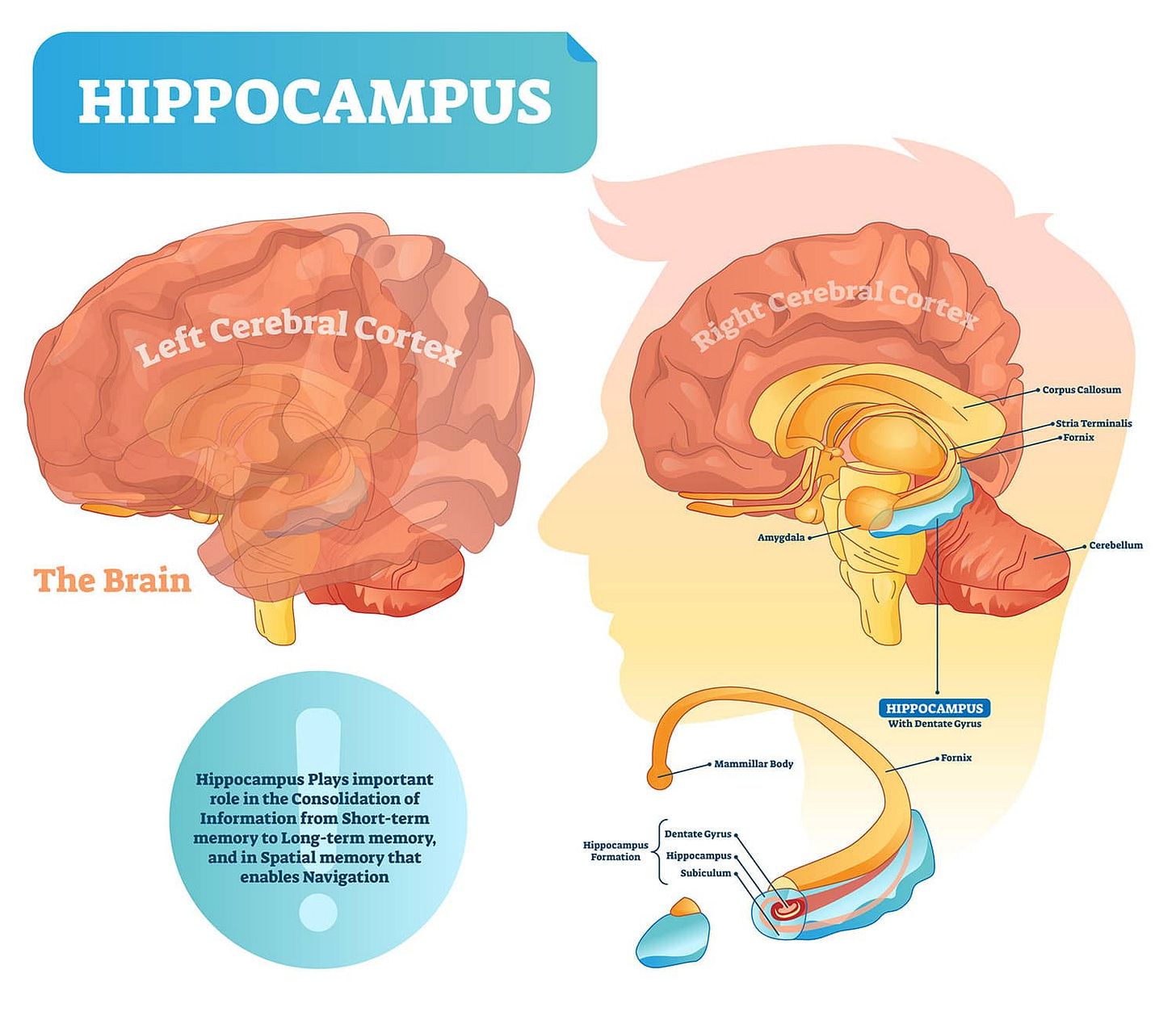Understanding the Hippocampus
Written by Lordina Yelioni
The hippocampus is a critical structure in the brain, shaped like a seahorse, and is located in the temporal lobe. It is part of the brain's limbic system, which is involved in regulating emotions and memory formation The hippocampus plays an essential role in consolidating short-term memories into long-term ones and is crucial for spatial navigation. Without a properly functioning hippocampus, the ability to form new memories or recall spatial information is impaired.
This structure is particularly important for the formation of declarative memories, which include facts and events that can be consciously recalled. The hippocampus works closely with other parts of the brain, such as the prefrontal cortex, which helps to organize and retrieve stored memories, and the amygdala, which adds emotional significance to certain memories. Damage to the hippocampus can result in severe memory loss, a condition known as amnesia.
Studies Concerning the Hippocampus and Memory
Studies on the hippocampus have shown its significant role in memory processing through imaging techniques like fMRI (Functional Magnetic Resonance Imaging) and PET scans. In one study, researchers asked participants to recall certain events from their past while monitoring brain activity. The hippocampus was highly active during memory retrieval, confirming its crucial role in recalling information.
Animal studies have also provided important insights into the hippocampus’s function. For example, experiments on rats have shown that damaging the hippocampus impairs their ability to navigate mazes, a common test of spatial memory. Rats with hippocampal lesions struggled to remember routes they had previously learned, highlighting the hippocampus’s role in storing and retrieving spatial information.
Hippocampal Damage and Memory Disorders
Damage to the hippocampus can have devastating effects on memory and cognition. Conditions such as Alzheimer’s disease, which affects the hippocampus early on, lead to significant memory loss and disorientation. Individuals with Alzheimer’s often have difficulty remembering recent events or learning new information due to the degeneration of the hippocampus.
In addition to Alzheimer’s, other conditions like epilepsy, brain trauma, and chronic stress can also damage the hippocampus, resulting in memory impairments. Prolonged stress, in particular, has been shown to shrink the hippocampus, potentially leading to memory problems. This is because stress hormones like cortisol can interfere with the production of new neurons in the hippocampus, further impairing its function.
Understanding the hippocampus and its role in memory is crucial for developing treatments for memory-related disorders. With continued research, scientists hope to uncover more effective therapies to protect and preserve hippocampal function in individuals with conditions like Alzheimer’s and depression.
References
Braak, H., & Braak, E. (1991). Neuropathological stageing of Alzheimer-related changes. Acta Neuropathologica, 82(4), 239-259.
Eichenbaum, H. (2000). A cortical-hippocampal system for declarative memory. Nature Reviews Neuroscience, 1(1), 41-50.
Kohler, S., Wagner, U., Rosentreter, D., & Werheid, K. (2015). Cognitive rehabilitation for early-stage Alzheimer's disease and mild cognitive impairment. Cochrane Database of Systematic Reviews, (3).
Maguire, E. A., Frackowiak, R. S., & Frith, C. D. (1998). Learning to find your way: A role for the human hippocampal formation. Proceedings of the Royal Society of London. Series B: Biological Sciences, 265(1407), 1749-1754.
McEwen, B. S. (2019). The brain on stress: Toward an integrative approach to brain, body, and behavior. Perspectives on Psychological Science, 14(5), 671-675.
Morris, R. G., Garrud, P., Rawlins, J. N., & O'Keefe, J. (1982). Place navigation impaired in rats with hippocampal lesions. Nature, 297(5868), 681-683.
Written by Lordina Yelioni from MEDILOQUY


